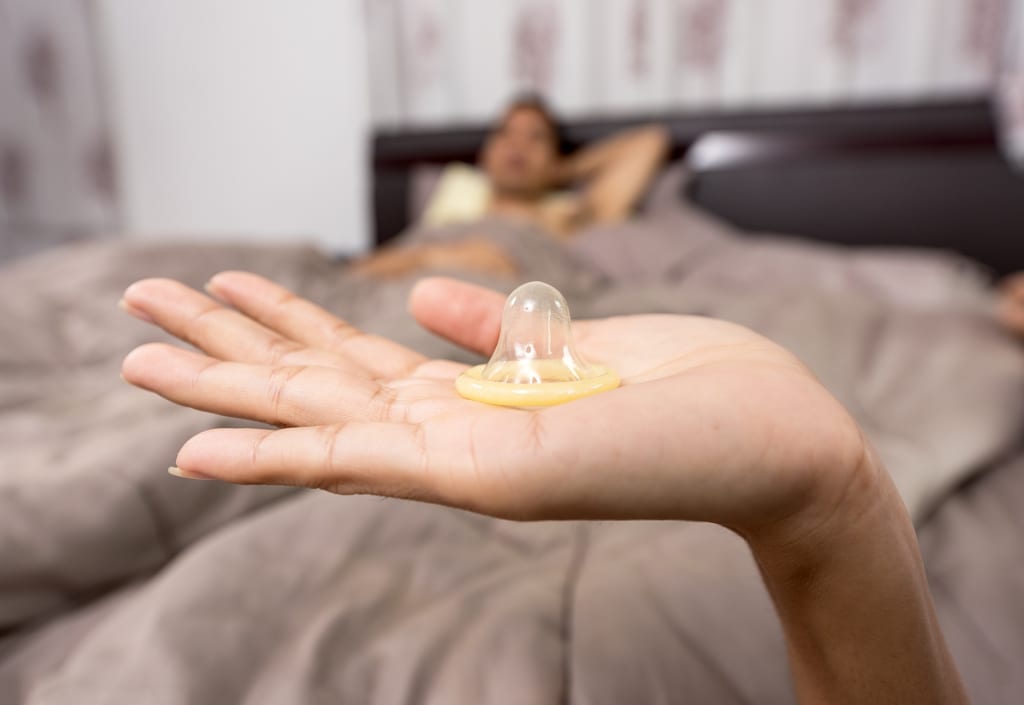how to use condoms to avoid pregnancy?
"Practical Tips and Guidelines for Proper Condom Use to Prevent Unwanted Pregnancy"

Using condoms is one of the most effective ways to prevent unwanted pregnancy and protect against sexually transmitted infections (STIs). However, many people still have questions or concerns about how to use condoms properly. Here are some tips on how to use condoms to avoid pregnancy:
- Choose the right size: Condoms come in different sizes, so it's important to choose the right size for a comfortable and secure fit. Condoms that are too tight or too loose can be more likely to break or slip off.
- Check the expiration date: Condoms have an expiration date, so make sure to check the packaging before use. Expired condoms may be less effective and more likely to break.
- Open the package carefully: Use your fingers to tear the package open, rather than using your teeth or scissors, to avoid damaging the condom.
- Put the condom on before any genital contact: Put the condom on before any genital contact occurs, including oral sex, to reduce the risk of STIs.
- Pinch the tip: Pinch the tip of the condom to leave room for semen and to prevent the condom from breaking during ejaculation.
- Unroll the condom all the way: Unroll the condom all the way down the penis, ensuring that it is covering the entire shaft.
- Use lubricant: Using a water-based or silicone-based lubricant can make sex more comfortable and reduce the risk of condom breakage. However, do not use oil-based lubricants such as lotion or Vaseline, as they can weaken the condom.
- Use a new condom for each act of sex: Use a new condom for each act of sex, as using the same condom multiple times increases the risk of breakage.
- Store condoms properly: Store condoms in a cool, dry place and away from direct sunlight. Do not store condoms in a wallet or glove compartment, as the heat and pressure can damage the condom.
By following these tips, you can effectively use condoms to prevent pregnancy and protect against STIs. It's important to remember that no form of contraception is 100% effective, so it's a good idea to use condoms in combination with another method such as hormonal birth control for added protection.
When should you stop using condoms?
The decision to stop using condoms ultimately depends on the individual's comfort level and the level of trust in their partner. Condoms are an effective form of birth control and protection against sexually transmitted infections, so it is important to weigh the risks and benefits of discontinuing their use.
If a couple is in a committed, monogamous relationship and has been tested for STIs, they may decide to stop using condoms for pregnancy prevention. However, it is important to note that condoms still offer protection against some STIs that can be transmitted through skin-to-skin contact.
Additionally, if a couple is using another form of birth control, such as hormonal contraception, and is confident in its effectiveness, they may choose to stop using condoms for pregnancy prevention.
It is important to have an open and honest conversation with your partner about the decision to stop using condoms and to ensure that both parties are comfortable with the decision. Regular STI testing and communication about sexual health are also important in any sexual relationship.
Are condoms 100% safe?
While condoms are highly effective in preventing sexually transmitted infections (STIs) and unwanted pregnancies, they are not 100% safe. There is always a risk of failure, particularly if they are not used correctly or if they break or tear during sex. The failure rate of condoms varies depending on factors such as the brand, type, and frequency of use. However, when used consistently and correctly, condoms can significantly reduce the risk of STIs and unintended pregnancies. It's essential to follow the instructions for use carefully, ensure that the condom is not expired or damaged, and use additional contraception methods such as birth control pills or intrauterine devices (IUDs) for added protection.
About the Creator
Ahamed Juman
Welcome! I'm a passionate writer sharing experience. My goal is to inspire and empower you with practical advice for a positive impact on your life. Let's embark on this journey of learning and growth together!
Enjoyed the story? Support the Creator.
Subscribe for free to receive all their stories in your feed. You could also pledge your support or give them a one-off tip, letting them know you appreciate their work.






Comments
There are no comments for this story
Be the first to respond and start the conversation.